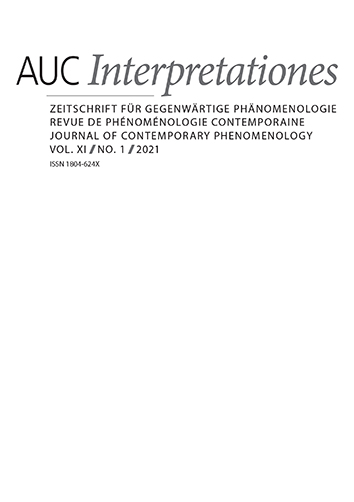AUC INTERPRETATIONES, Vol 1 No 1 (2011), 83–97
„Die transzendentale Methodenlehre“ in der „VI. Cartesianischen Meditation“ Eugen Finks als „meontische“ Kritik an der transzendentalen Phänomenologie Husserls
Yusuke Ikeda
zveřejněno: 13. 01. 2015
Abstract
It was Edmund Husserl himself who asked of his assistant Eugen Fink to draw up the “Sixth Cartesian Meditation”. For this reason, we usually tend to interpret it as an elaboration of the husserlian idea of a “phenomenology of phenomenology”. That said, we cannot ignore the fact that Fink himself considered that the intention of the “Sixth Cartesian meditation” is crystallized in his own term ‘Meontic’. Thus we are confronted with two possible interpretations of the “Sixth Cartesian Meditation”, namely 1. the “Sixth Cartesian Meditation” as Fink’s fulfillment of the husserlian idea of a “phenomenology of phenomenology”, and 2. the “Sixth Cartesian Meditation” as an exposition of Fink’s thought of ‘Meontic’. Since we cannot find a complete and satisfying interpretation in either alternative views, but we shall try, in the following paper, to find one aspect in which these two interpretations can be integrated. At first, we will study Husserl’s transcendental phenomenology, especially his theory of “evidence”. Then, we will attempt to determine the meaning and significance of this unkown term ‘Meontic’ by reconstructing the “Sixth Cartesian Meditation” as one of Fink’s critique of Husserl’s transcendental phenomenology.

„Die transzendentale Methodenlehre“ in der „VI. Cartesianischen Meditation“ Eugen Finks als „meontische“ Kritik an der transzendentalen Phänomenologie Husserls is licensed under a Creative Commons Attribution 4.0 International License.
148 x 210 mm
vychází: 2 x ročně
cena tištěného čísla: 180 Kč
ISSN: 1804-624X
E-ISSN: 2464-6504
